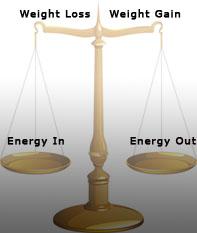Anoop- I really enjoy this article. It’s great to see things put in the light, and obvious. Why diets work really is simple, and I’m glad you’ve chosen to edcuate people on the simplicity of health.
The Best Diet for Fat Loss
June 22 2008
I ain’t no psychic. Nor do I know how to read minds. But I do know that we all have some chubby little fat to lose. No matter what “those” people say, if you think you look fat in the mirror, the only objective way to unfat yourself is to lose weight or stop using the mirror. Losing weight is easy (Ok, at least theoretically).
What is the problem?
Picking a diet from a myriad of diets to lose that weight seems to be the hardest part these days. There is the Atkins diet, South Beach Diet, The Zone diet, The Paleo Diet, The warriors diet, The GI diet, The 3-hour diet, The Mediterranean diet, The metabolic type diet, The French Diet and many more, and a few more. And what do they all have in common?
They all are least 200 pages long and claim to be better than the rest! I know it’s complicated, and they do write to make it even more complicated. Fortunately, our body likes to keep things simple and uncomplicated.
The human body goes by some simple rules when it comes to losing or gaining weight. If energy intake is less than the output, you will lose weight; and this is the fodder for all diet books out there.
How diets work?
All they do is “trick” you into eating less instead of directly asking you to eat less.
Low carb diets work by making you eat less carbs. And carbs form a big part of your meals. Anytime you scoop such a big chunk from your meal, you tend to eat less.
Low fat diets work by making you eat less fat. Fat is more calorie dense than carbs and protein and hence the less you eat fat, the less calories you take in. Also there are other diets which stuff you on lots of high volume, low calorie foods, like vegetables so that you end up eating less of calorie rich foods.
The diet based on glycemic index (GI), makes you eat low GI carb foods than high GI foods to prevent those insulin spikes, and minimize hunger and in turn helps you eat less. And yes, portion control works along the same lines too.

Figure: A simple balance scale explains weight loss and weight gain.
Why some diets work and some do not?
But a good question is if it’s all about calories in and out, how come some people do well on certain diets and some don’t?
And I would say it basically comes down to hunger control. Some folks tend to manage the hunger much better with certain diets and hence have better adherence. Whereas some folks are miserable on certain diets and soon quit.
Most of it has a lot to do with physiological and environmental factors. For example, low carb diets, like Atkins might be the worst choice for someone who indulges in physical and mental labor, like a college student or an athlete. Without carbs, they are always tired and hungry and their performance in school or in their sport goes down; it’s just a matter of time before they start gorging and breaking the diet. These folks need energy and they will do much better on a high carb or a moderate carb diet.
On the other extreme, some folks get those uncontrollable cravings, mood, and energy swings with a high carb diet and tend to eat a lot more than if they had been on a low carb diet. Most often they are people whose body type doesn’t respond well to insulin (insulin resistant individuals). It requires a little bit of trial and error from your part to see where you belong.
Another good question is how come some people start losing weight on a diet but then start to plateau or gain weight?
Almost all diets do not make you count calories. Probably because they know humans are inherently lazy, and hate diets that have us count and calculate; or just simply diets which make us work harder. Only a handful of diets emphasize calorie counting. Weight Watchers is one of them, but even they use a point system to save you from the hassle of counting calories. Also to make matters worse, the more you lose weight, the better the body fights back. And this is very true whatever diet you follow.
One cool way the body fights back is by ramping up hunger. For instance, someone follows an Atkins diet and has lost a lot of weight. But now he is not losing/ is gaining weight though he is eating very few carbs. How come? The obvious reason is that his hunger signals have gone up as they should have, and he is compensating it by eating more of “allowed” foods in the diet like protein and fat and thereby taking in more calories. Anyhow, the best diet is one which helps control hunger and thereby contrl calories the best. Or simply put, the best diet is the one that you can stick to.
Conclusion
Now, as they all do, I will give an outline of the main points we discussed: no matter what they say diets work by making you eat less, individualize your diet based on your life style and body make up, and try to keep an approximate count of calories if you ever decide to maintain the lost weight.
Related
Is HIIT the Most Effective & Efficient Program for Weight Loss
Related Articles
Anoop | Thu February 19, 2009
Thanks Sarah.
For some reason, I think I know you from somewhere (:-

